Enhancing Soft Skills for DevOps Engineers: Essential Non-Technical Skills to Thrive
Introduction
Course Agenda
Welcome to the “Enhancing Soft Skills for DevOps Engineers” course. In this lesson, you’ll learn how to:
- Master non-technical skills critical for DevOps success
- Communicate effectively with teams and stakeholders
- Lead and influence peers in a complex environment
- Collaborate and build psychological safety
- Prioritize work and manage your time efficiently
- Embrace continuous improvement practices
- Consult and manage client relationships
- Apply key takeaways in real-world scenarios
Course Objectives
We aim to strengthen these six core soft-skill areas for engineers:
- Communication
- Leadership & Influence
- Collaboration & Team Dynamics
- Prioritization & Time Management
- Continual Improvement
- Consulting & Client Management
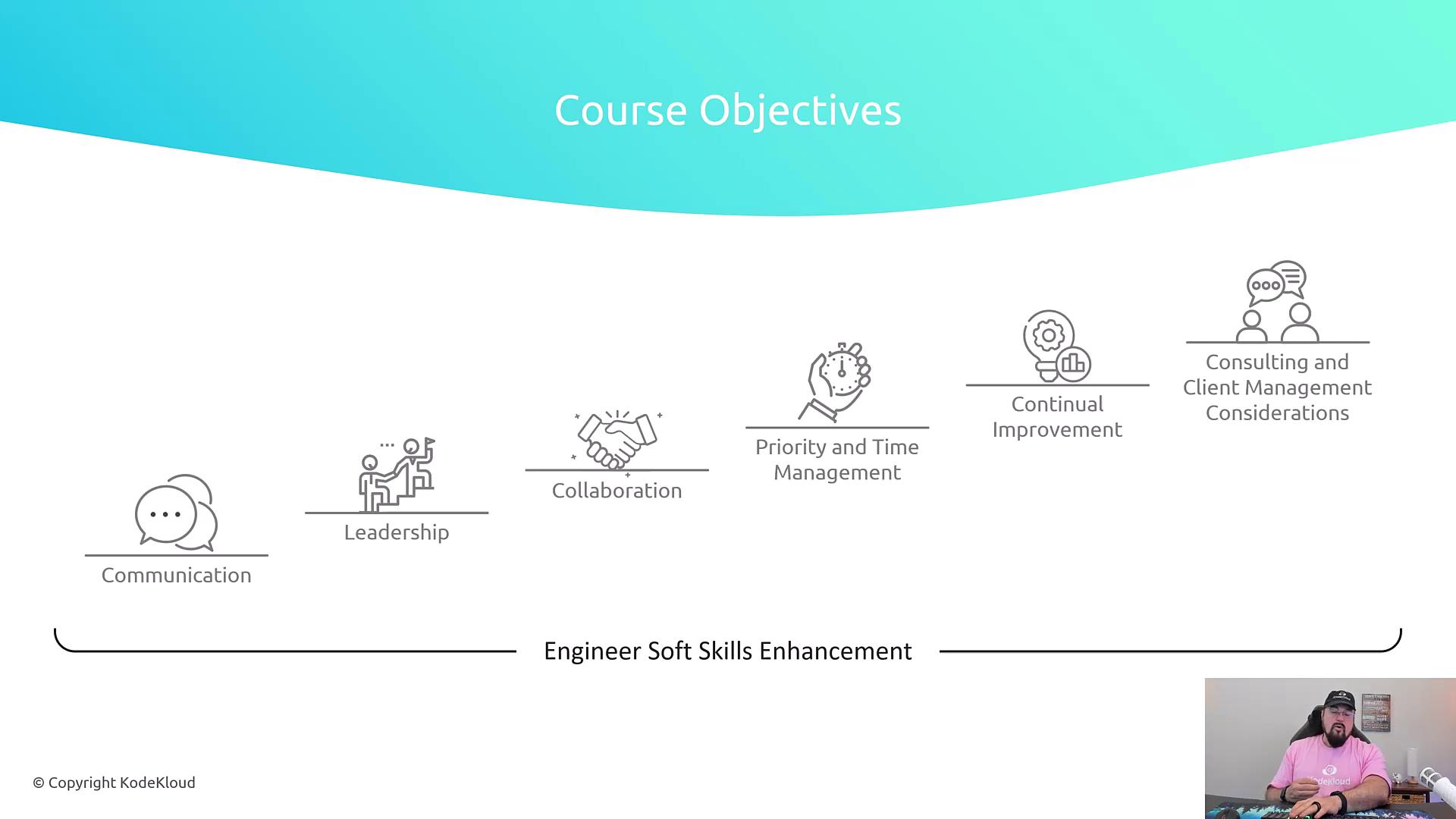
Who Is It Designed For?
Ideal participants include:
- DevOps engineers and system administrators
- Team leads and engineering managers
- Consultants interfacing with internal or external clients
- Anyone seeking to boost interpersonal and leadership capabilities
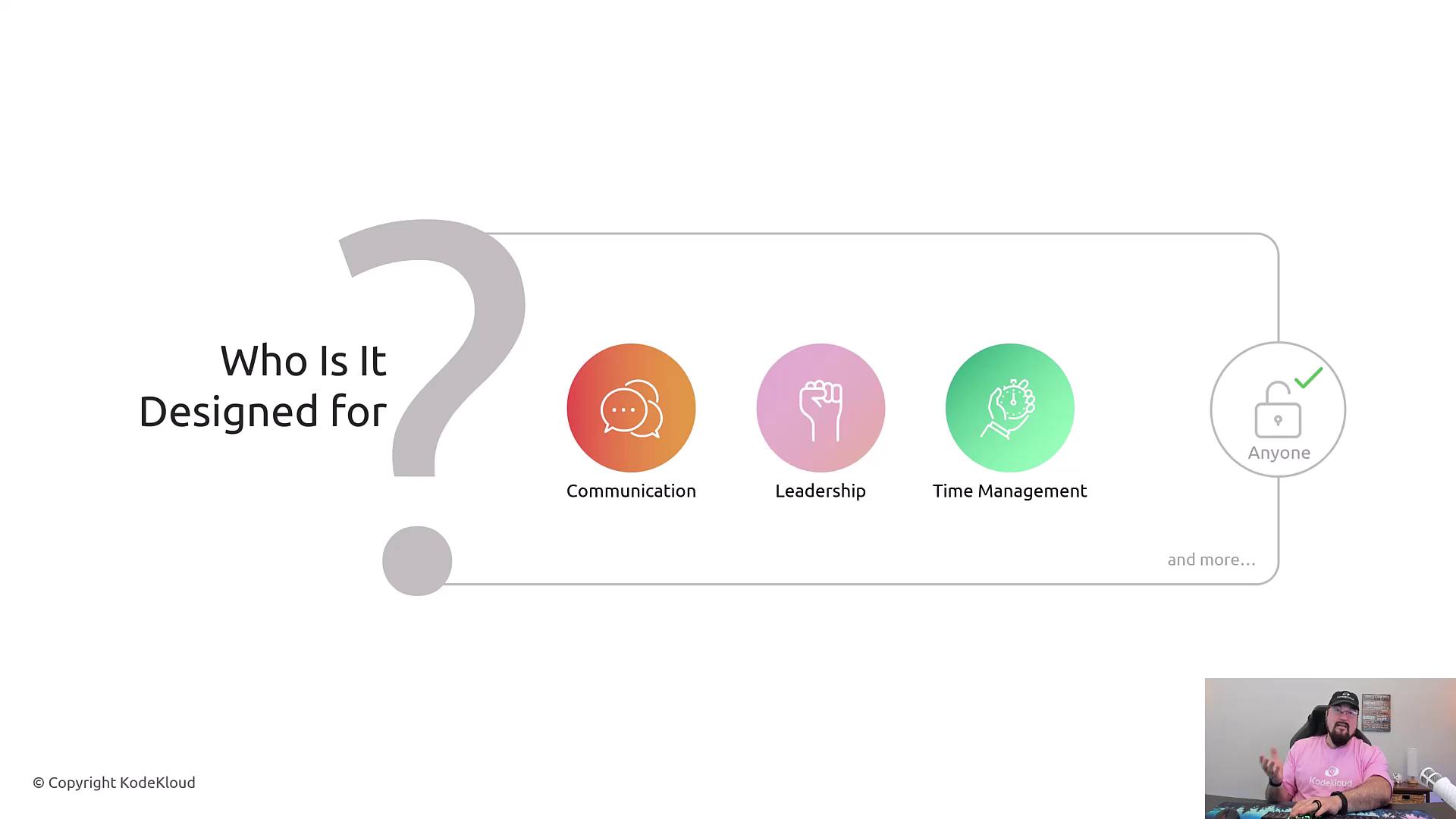
Course Structure & Assessments
This lesson is divided into eight sections:
| Section | Topic | Key Elements |
|---|---|---|
| 1 | Introduction | Overview, navigation tips |
| 2 | Communication, Expression & Storytelling | Pre-quiz, scenario video, concepts, post-quiz |
| 3 | Influencing, Leadership & Trust | Pre-quiz, scenario video, trust-building techniques |
| 4 | Collaboration & Team Dynamics | Pre-quiz, mob programming, psychological safety |
| 5 | Prioritization & Time Management | Pre-quiz, capacity planning, real-world tips |
| 6 | Continual Improvement | Pre-quiz, reflective practice, targeted learning |
| 7 | Consulting & Client Management | Pre-quiz, stakeholder alignment, problem-solving |
| 8 | Conclusion & Next Steps | Recap, resources, application guidance |
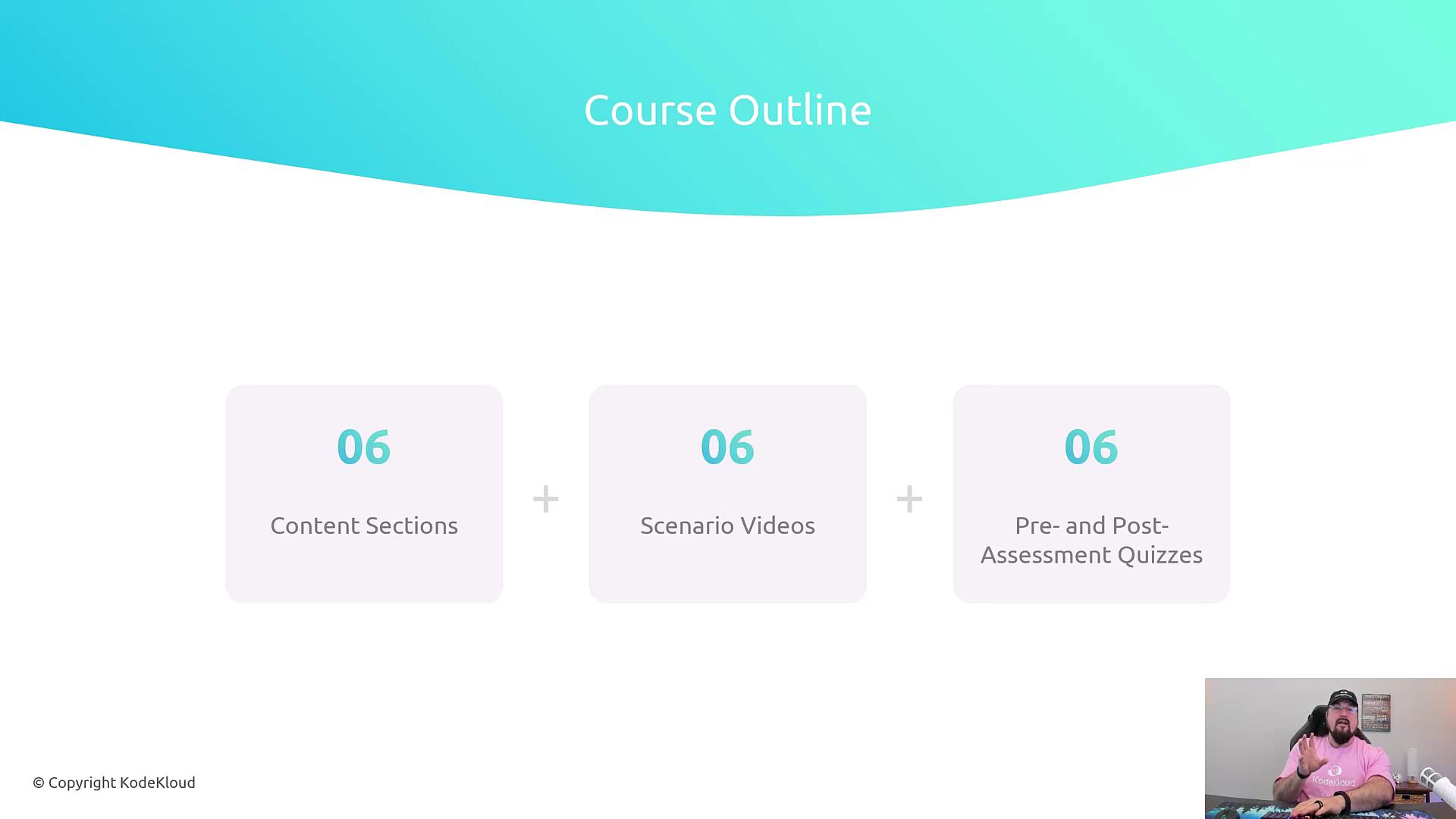
Note
Each core section (2–7) includes a pre-assessment quiz, a 60-second scenario video, core concepts with practical techniques, and a post-assessment quiz.
Pre- and Post-Assessments
At the start and end of sections 2–7, you’ll tackle the same set of 15 questions to track your progress:
- Pre-assessment: Establish your baseline skill level
- Post-assessment: Measure your improvement after each module
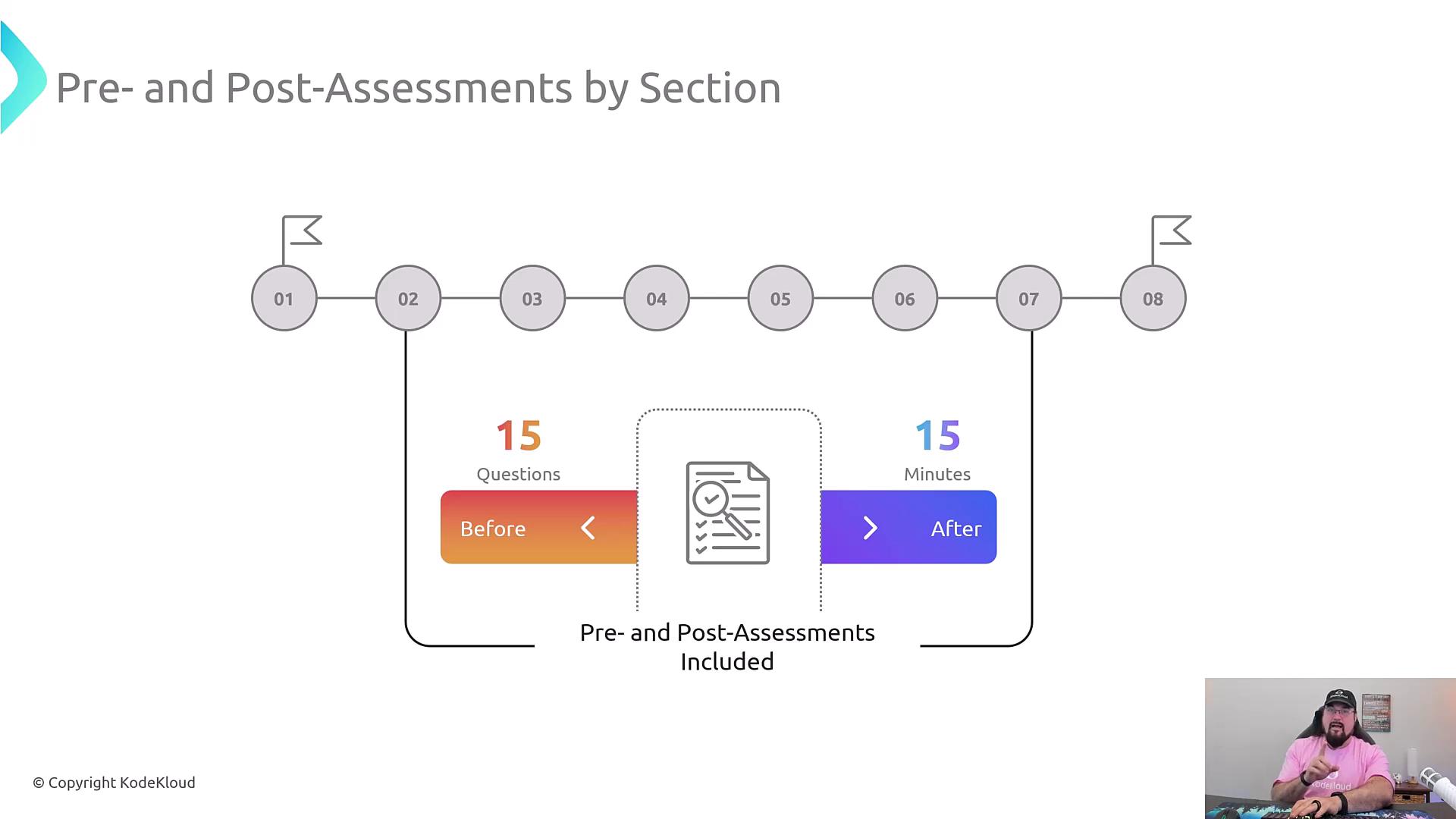
Section Breakdown
Section 1: Introduction
- Overview of the course layout
- Why non-technical skills matter in DevOps
- Tips for navigating quizzes and videos
Section 2: Communication, Expression & Storytelling
- Pre-assessment: “Are you an effective communicator?”
- Key topics: nonverbal cues, verbal clarity, professional writing, narrative vs. pure data
- Scenario video: Demonstrating the power of storytelling
- Post-assessment: Evaluate your progress
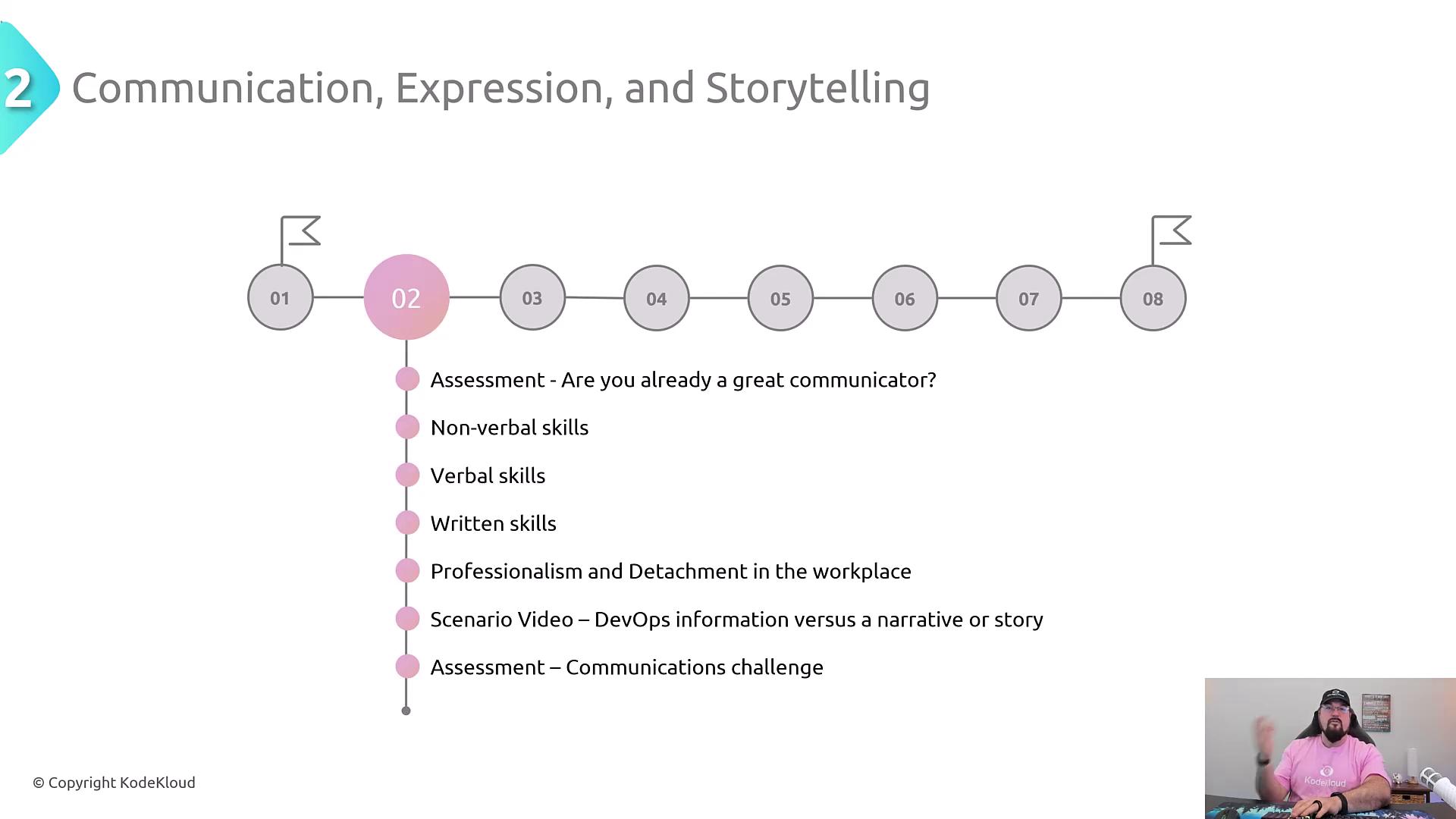
Section 3: Influencing, Leadership & Trust
- Pre-assessment: Assess your leadership strengths
- Core concepts: trust-building, persuasive communication, situational leadership models
- Scenario video: Real-world leadership challenge
- Post-assessment: Track skill development
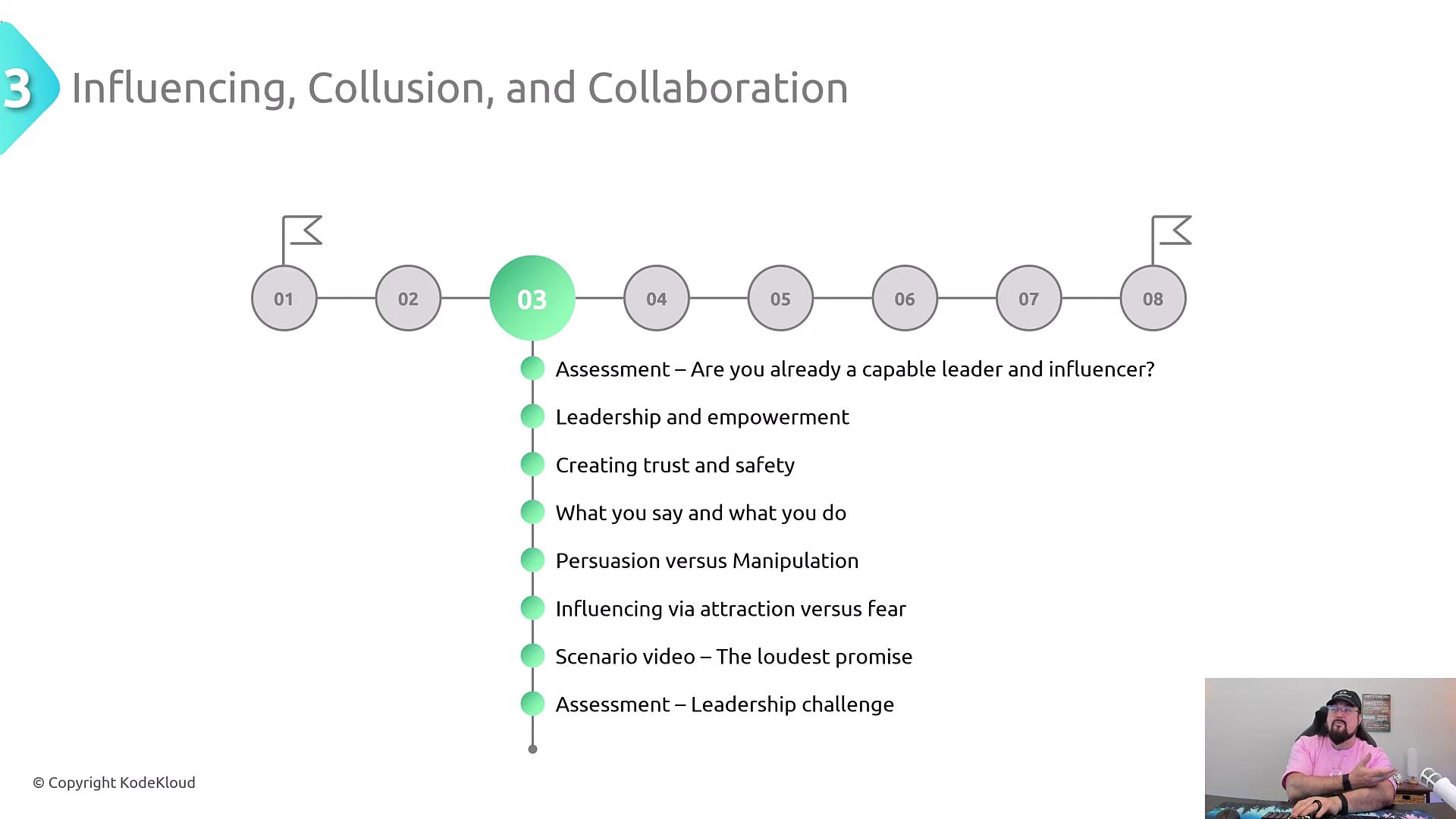
Section 4: Collaboration & Team Dynamics
- Pre-assessment: Gauge your teamwork capabilities
- Topics: mob programming, “social grease,” psychological safety
- Techniques: building shared ownership, peer feedback
- Post-assessment: Compare your insights
Section 5: Prioritization & Time Management
- Pre-assessment: Evaluate your current task management
- Topics: prioritization frameworks (e.g., Eisenhower Matrix), capacity planning, deadline balancing
- Tips: real-world strategies for managing ad hoc requests
- Post-assessment: Confirm new techniques mastery
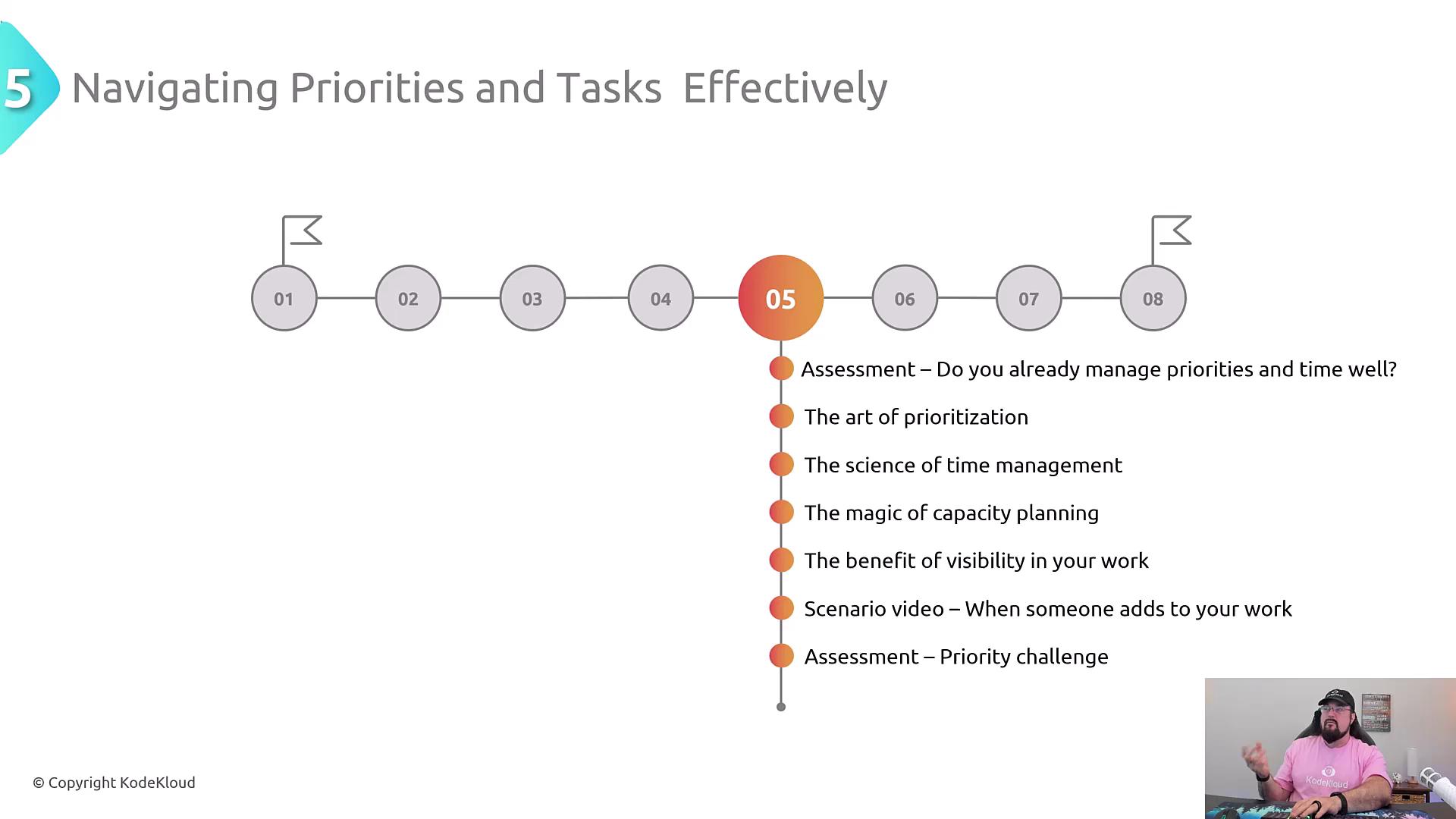
Section 6: Embracing Continuous Improvement
- Pre-assessment: Are you adapting and learning effectively?
- Key areas: reflective practice, goal setting, focused vs. unfocused learning
- Scenario video: Structuring a professional development plan
- Post-assessment: Measure your growth
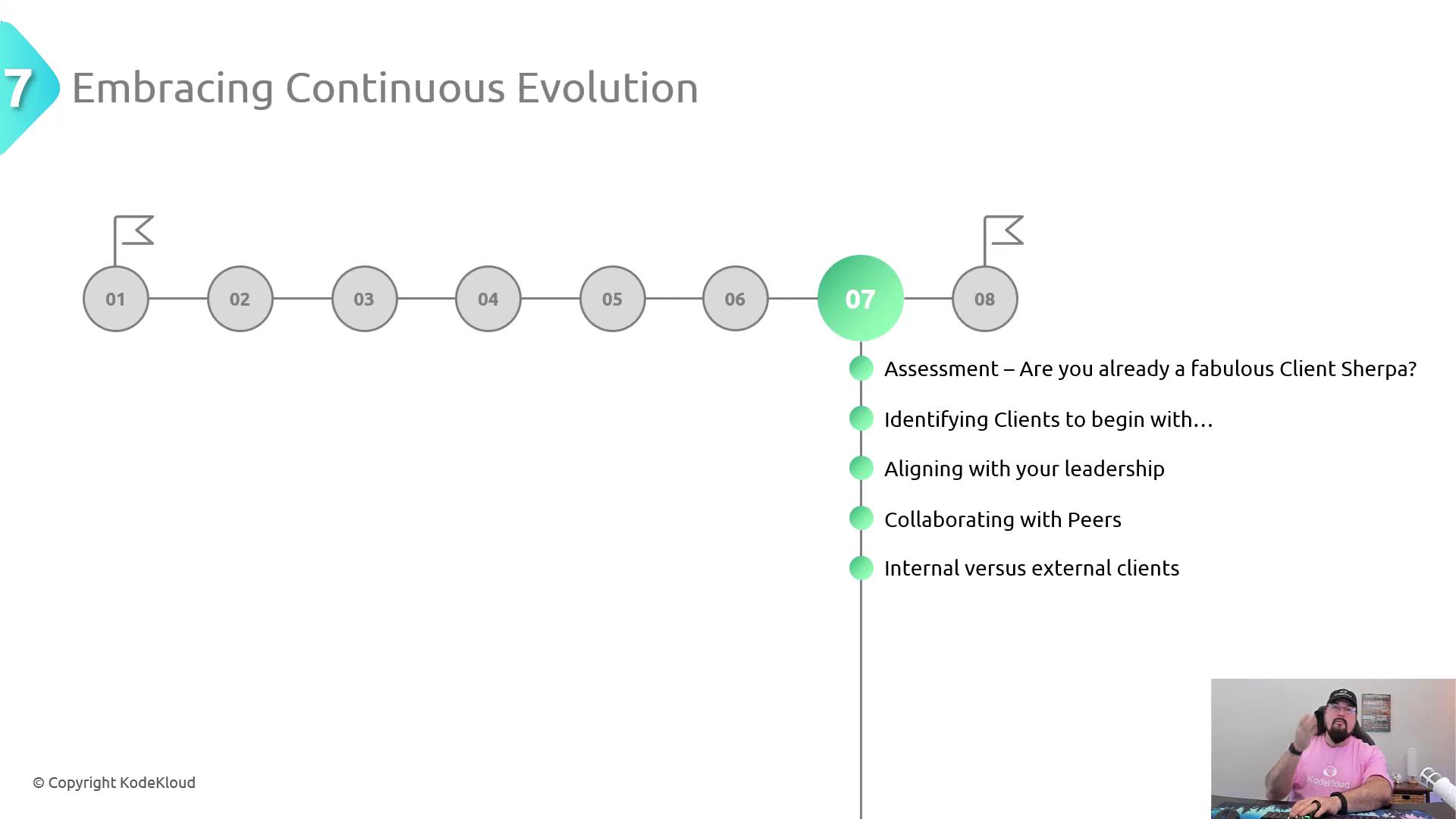
Section 7: Consulting & Client Management
- Pre-assessment: Assess your client-engagement skills
- Topics: uncovering client needs, stakeholder alignment, internal vs. external clients, structured problem-solving
- Scenario video: Client-consulting best practices
- Post-assessment: Validate readiness to consult
Section 8: Conclusion & Next Steps
- Recap of key takeaways from all sections
- Recommended resources for deeper learning
- Action plan: applying these skills on the job
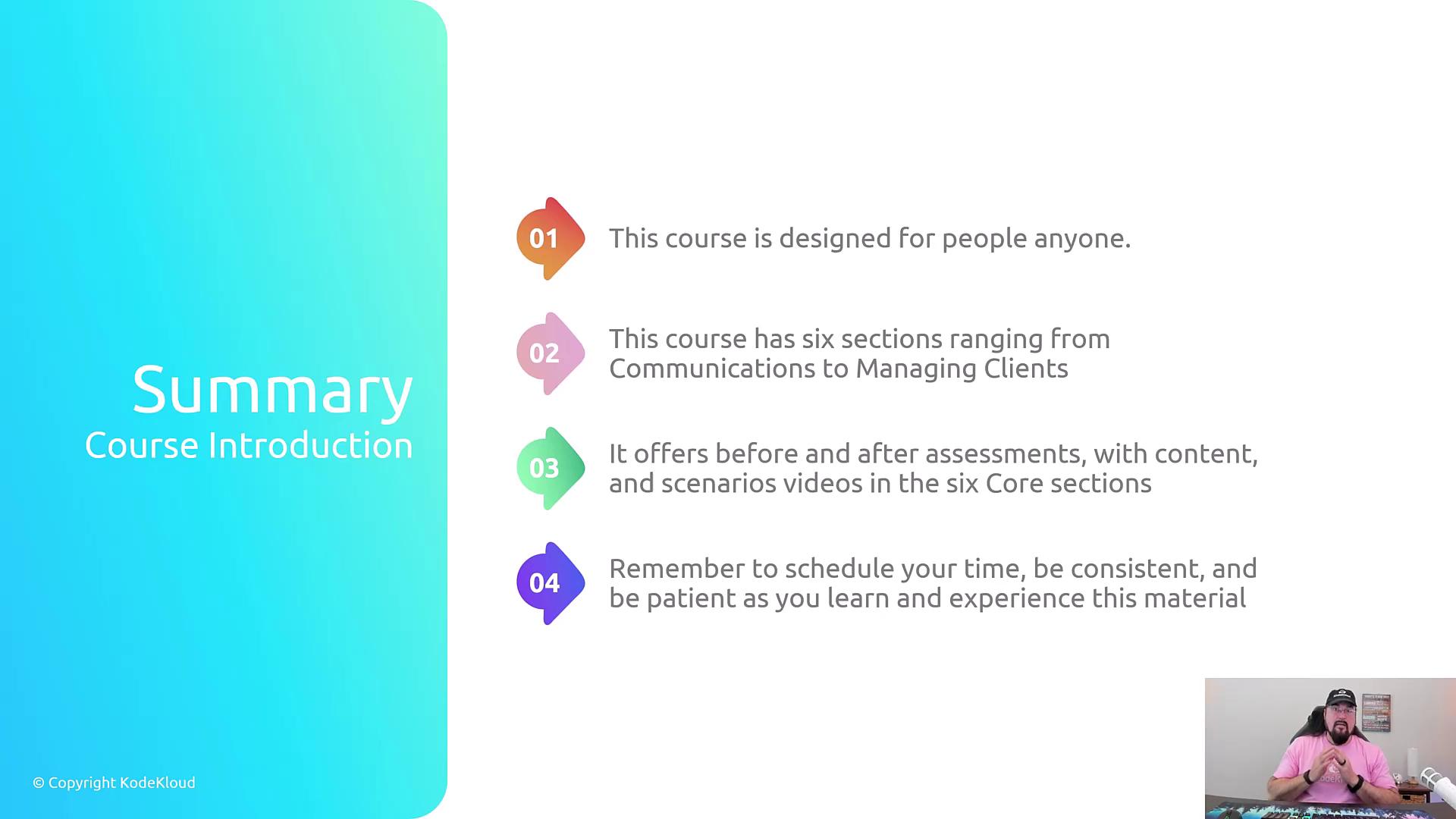
Tips for Maximizing Your Learning
- Be Patient
Skill development takes time—learn, pause, then practice. - Stay Consistent
Just 15 minutes daily builds momentum; 1 hour per day completes the course in 2–3 weeks. - Explore “Social Grease”
Research the concept, discuss with peers, and notice its impact on collaboration. - Protect Your Time
Schedule a dedicated learning slot and treat it as non-negotiable.
Warning
Avoid multitasking during your learning block—protect your focus to maximize retention.
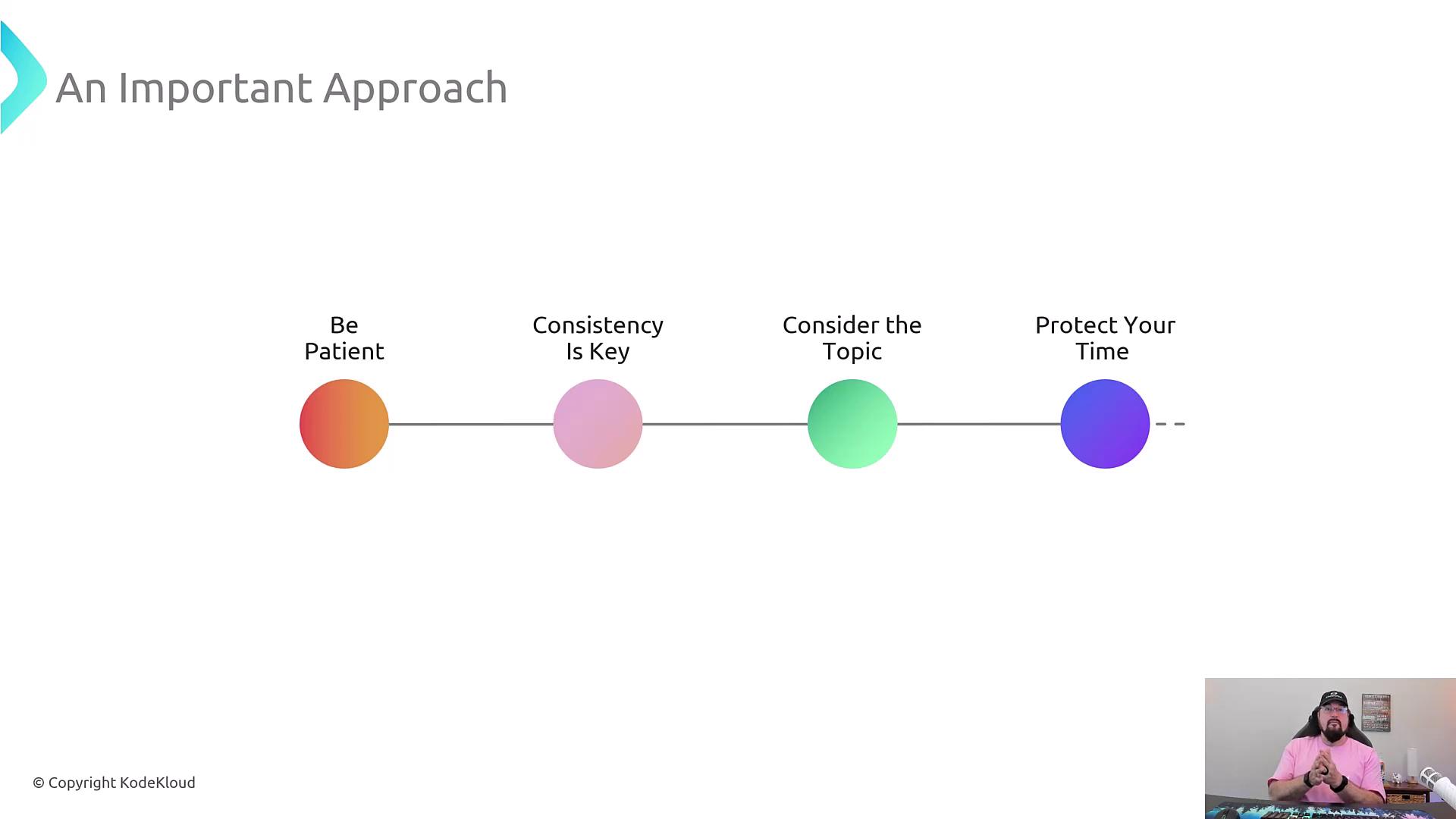
References
- DevOps Institute
- Harvard Business Review: Leadership Principles
- Atlassian Guide to Time Management
- Psychological Safety in Teams
Thank you for participating—apply these strategies consistently to enhance your soft skills and accelerate your DevOps career.
Watch Video
Watch video content